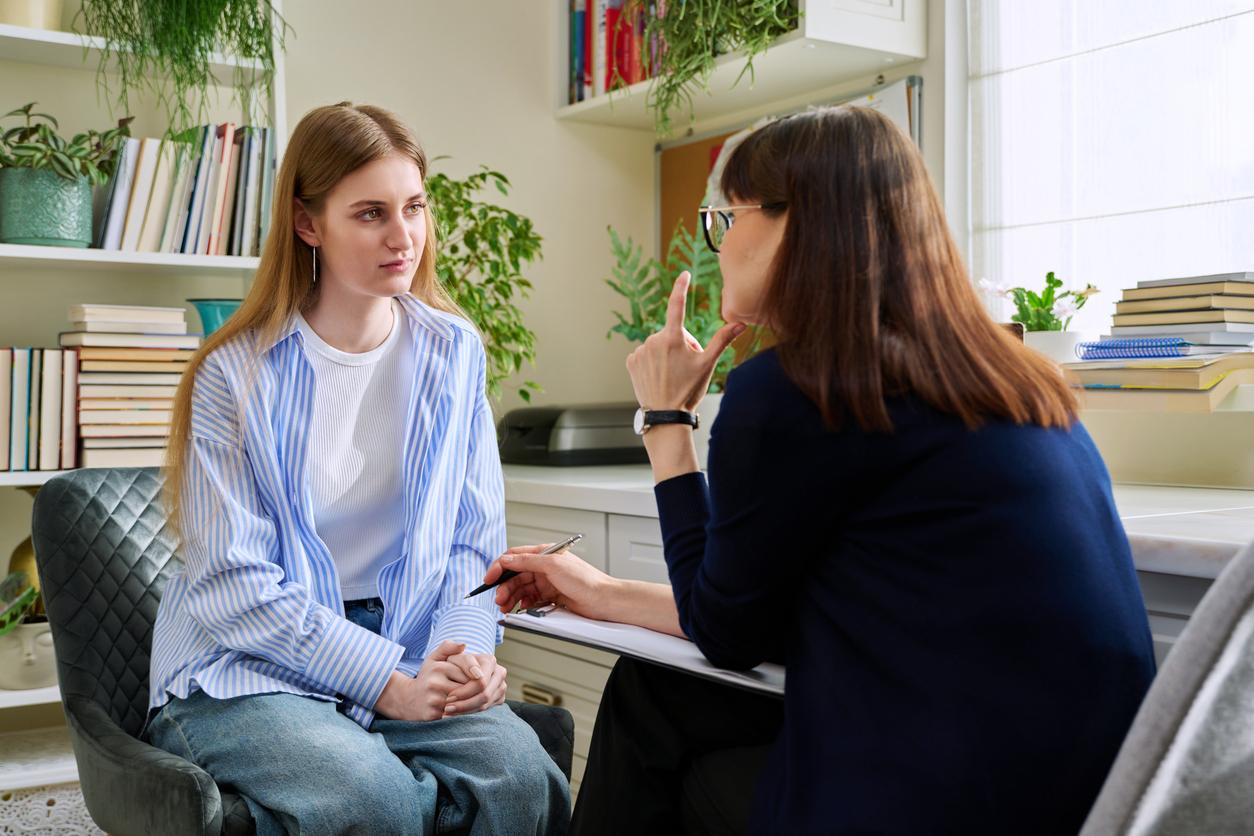American scientists have created a platform capable of detecting signs of anxiety attacks in facial expressions and in the voice, then linking them to health information collected through connected watches or smartphones.

- In the management of patients with psychiatric disorders, follow-up between consultations is essential.
- The software can be installed on smartphones and alerts healthcare professionals to signs of hyperexcitability, an indicator of an anxiety attack.
- According to the World Health Organization, one in four people worldwide suffers from mental illness.
How to properly monitor patients with psychiatric disorders between two appointments? Researchers at Texas A&M University have found a solution: a platform capable of detecting the warning signs of an anxiety attack. They present their findings in Journal of Psychiatric Practice.
Necessary follow-up between consultations
Unlike physical pathologies that can be treated in a few appointments, people with mental disorders need long-term follow-up. “Mental health can change very quickly, and many of these changes remain invisible to healthcare professionals.“, specifies Dr. Farzan Sasangohar, one of the authors of this study. They cite the example of a patient suffering from anxiety, if he is confronted with a stressful event, he can feel strong irritability or nervousness, which require immediate medical attention.
Algorithms capable of detecting an abnormal situation
The tool developed by the scientific team aims to provide doctors with feedback on the state of health of patients, and to alert them in the event of a sudden deterioration in their mental health. The software is able to detect patients’ hyperexcitability, a premonitory sign of psychological distress such as anxiety attacks. To do this, it identifies signs in the voice and on the face, and collects health data such as heart rate or the number of steps taken, recorded on smartphones or connected watches. “Data from these different sources is then used to train algorithms to recognize situations corresponding to a normal level of excitability, say the researchers. Once trained, the algorithms continuously monitor the data to determine if the individual is at a high level of excitability.“
A discreet tool
“Our technology gives them continuous access to patient data and status, adds Dr. Farzan Sasangohar, and I think it can have a vital impact because it allows them to contact them when they need it.“He adds that it offers patients the opportunity to regain control over the management of their mental health. Also, the confidentiality of this technology was one of the important elements for the researchers. “We picked common tools, like smartphones, and then built sophisticated apps that work on those devices to make mental health management unobtrusive.“At the moment, the tool is at the prototype stage, the research team is working on improving the lifespan of smartphone batteries because the software uses a lot of energy.

.















